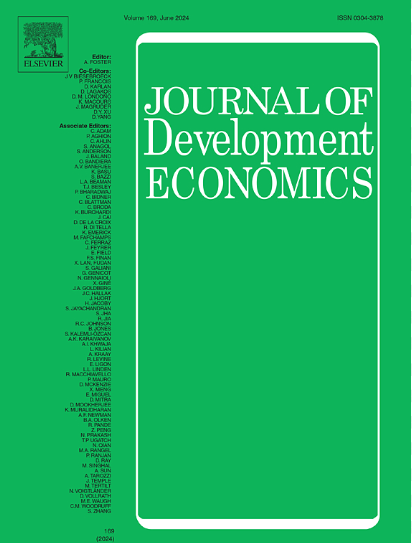The long-term effect of television on children's human capital development in China
IF 4.6
1区 经济学
Q1 ECONOMICS
引用次数: 0
Abstract
This paper examines the long-term impacts of childhood exposure to educational television on human capital formation. We focus on CCTV-14, China's first nationally broadcast channel specifically designed for children. Exploiting variation in the timing of cable and satellite television rollout across communities, we document that access to CCTV-14 led to significant and persistent improvements in non-cognitive skills. These gains are particularly pronounced among left-behind children, suggesting that the channel played a compensatory role in addressing early developmental disadvantages. In contrast, we find no evidence of sustained effects on cognitive outcomes. The observed asymmetry underscores the importance of program content in shaping skill development. Finally, children exposed to CCTV-14 are more likely to achieve a higher socioeconomic status, better health, and enhanced digital literacy than those who did not.
电视对中国儿童人力资本发展的长期影响
本文考察了儿童时期教育电视对人力资本形成的长期影响。我们专注于CCTV-14,这是中国第一个专门为儿童设计的全国性广播频道。利用各社区有线电视和卫星电视推出时间的变化,我们证明了CCTV-14的访问导致非认知技能的显着和持续的改善。这些收益在留守儿童中尤为明显,这表明该渠道在解决早期发育缺陷方面发挥了补偿性作用。相比之下,我们没有发现对认知结果有持续影响的证据。观察到的不对称强调了节目内容在塑造技能发展中的重要性。最后,接触CCTV-14的儿童比没有接触CCTV-14的儿童更有可能获得更高的社会经济地位、更好的健康状况和更强的数字素养。
本文章由计算机程序翻译,如有差异,请以英文原文为准。
求助全文
约1分钟内获得全文
求助全文
来源期刊

Journal of Development Economics
ECONOMICS-
CiteScore
8.30
自引率
4.00%
发文量
126
审稿时长
72 days
期刊介绍:
The Journal of Development Economics publishes papers relating to all aspects of economic development - from immediate policy concerns to structural problems of underdevelopment. The emphasis is on quantitative or analytical work, which is relevant as well as intellectually stimulating.
 求助内容:
求助内容: 应助结果提醒方式:
应助结果提醒方式:


